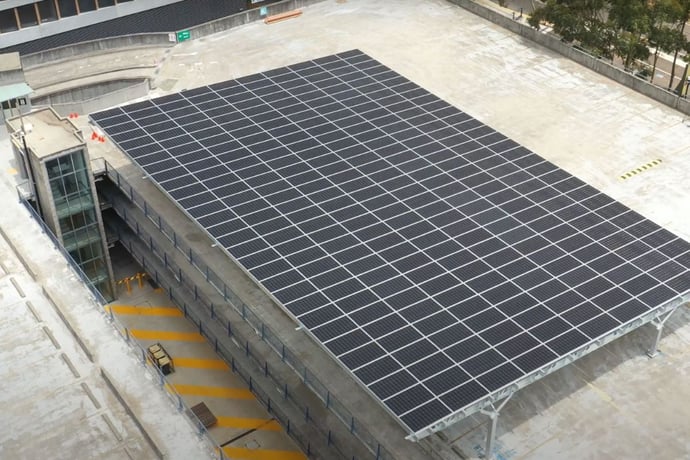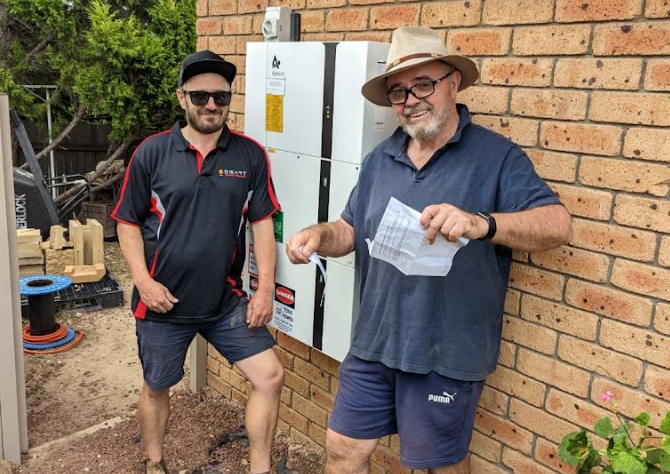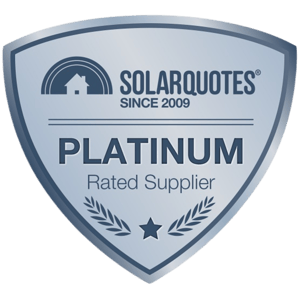Reduce Energy Consumption: Key Steps Before Going Solar
.jpg)
Before Going Solar: Key Steps to Reduce Energy Consumption
As families & businesses seek to reduce their carbon footprint and lower energy costs, many are considering the installation of solar panels as a viable solution. While solar power can provide a significant reduction in energy costs and carbon emissions, it's important to note that it shouldn't be the first step in reducing energy consumption.
Before you start considering solar as an option, it's important to ensure that you've taken steps to reduce your energy consumption as much as possible. This can be achieved through a number of simple changes, including improving air conditioning efficiency, replacing lights with LED bulbs, and improving insulation. By reducing energy consumption, you'll not only reduce your carbon footprint but also save money on energy costs, which will make the investment in solar panels and batteries even more financially viable.
.jpg?width=1200&height=630&name=Blog%20-%20reduce%20energy%20consumption%20(2).jpg)
Improving air conditioning efficiency is an easy way to reduce energy consumption. By regularly servicing your air conditioning system, you'll ensure that it's running efficiently and not wasting energy. Additionally, you may want to consider installing programmable thermostats, which can automatically adjust the temperature of your building or home based on occupancy patterns, saving energy when the building is unoccupied.
.jpg?width=1200&height=630&name=Blog%20-%20reduce%20energy%20consumption%20(4).jpg)
Replacing traditional light bulbs with LED bulbs is another easy way to reduce energy consumption. LED bulbs use significantly less energy than traditional bulbs and last much longer, making them a cost-effective investment in the long run. In addition to replacing bulbs, consider installing motion sensors or timers to automatically turn off lights in areas that are not frequently used.
.jpg?width=1200&height=630&name=Blog%20-%20reduce%20energy%20consumption%20(6).jpg)
Improving insulation is also an important step in reducing energy consumption. By ensuring that your building or home is well-insulated, you'll prevent energy from escaping through cracks and gaps in your walls and roof. This will not only reduce your energy consumption but also make your building more comfortable for employees and customers.
.jpg?width=1200&height=630&name=Blog%20-%20reduce%20energy%20consumption%20(5).jpg)
Once you've taken steps to reduce your energy consumption, then it's time to consider solar and batteries as a viable options. Solar panels can provide a significant reduction in energy costs and carbon emissions while batteries allow you to store excess solar energy generated during the day and use it at night or during periods of low solar generation. Moreover, you could potentially generate additional income with your batteries through selling excess energy back to the grid. These can provide greater energy independence and help reduce your reliance on the grid, but it's important to note that they require a significant investment upfront. By reducing your energy consumption first, you'll ensure that your investment in solar panels and batteries is as cost-effective as possible.

 Happily tearing his electricity bill.
Happily tearing his electricity bill.
In conclusion, solar power and batteries can be a great way for your home or business to reduce energy costs and carbon emissions. However, it's important to note that it should be the last step in reducing energy consumption. Before considering solar and batteries, homes & businesses should take steps to improve air conditioning efficiency, replace lights with LED bulbs, and improve insulation. By reducing energy consumption first, you can ensure that your investment in solar panels and batteries is as cost-effective as possible should you decide to proceed with it.
%20(1).png?width=265&height=96&name=www.smartenergyanswers.com.auhs-fshubfsSmart%20Energy%20Answers%20Logo%20(HIRES)%20(1).png)

.png?width=514&height=121&name=Tesla%20Powerwall%203%20(new).png)








.webp?width=300&height=180&name=sigenergy-gold-installer-300x180%20(1).webp)